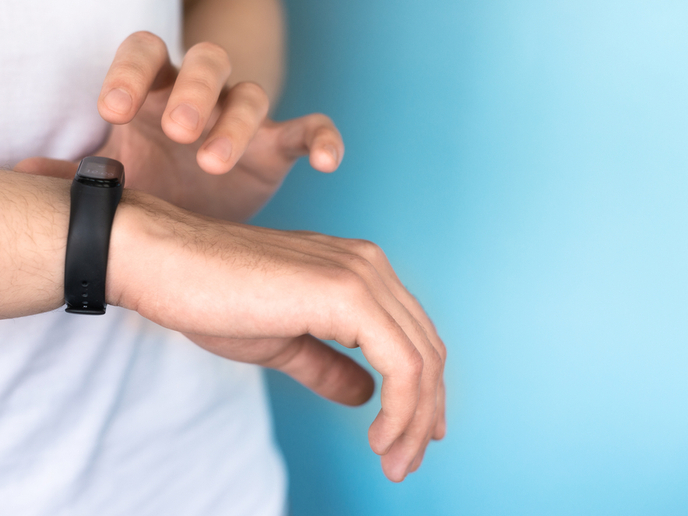Innovative personal tech can help people manage their affective disorders
Just as we get an early taste of spring and the widespread COVID-19 vaccination looms, it’s also time to look back and take stock of how almost a year of lockdown affected European citizens. Beyond the many bankruptcies, lost jobs and sometimes the loss of loved ones, there is a clear trend materialising: Isolation and lack of human contact are causing enormous psychological distress, and affective disorders have become omnipresent. Corina Sas from Lancaster University had been convinced of the need to tackle this problem long before COVID-19 emerged. As the AffecTech (Personal Technologies for Affective Health) project launched in 2017, she warned that the likes of stress, depression and bipolar conditions would become some of the highest causes of disease by 2020. But she and her partners were also convinced that personal health technology could help. The AffecTech consortium has spent the past 4 years working on new, low-cost wearable devices to help people with such conditions. Their objective is to take the leap from monitoring technologies like smartwatches and smart wristbands to alternatives that can help patients self-manage their condition.
Why exactly did you feel the need to advance technologies related to affective disorders? What were the main problems you wanted to overcome with this project?
Corina Sas: The value of technologies for mental health is not new. In fact, it has been long acknowledged through early self-help internet sites, computerised cognitive behavioural therapy systems, or virtual reality systems for exposure anxiety in treatment of anxiety disorders. About two decades ago, we saw personal health systems shift from PC-based interventions to physiological monitoring, used mostly for the management of heart or diabetes conditions. Yet, physiological monitoring through biosensors such as those measuring galvanic skin response or heart rate can also be used to capture emotional responses. Everyday technologies have become increasingly powerful: Our smartphones or smartwatches can capture for instance biodata associated with our emotional experiences, which holds potential for affective disorders. We just need to find how we can move beyond the monitoring of emotional responses towards actively managing them. This is precisely the focus of the AffecTech project: to design and develop novel personal technologies that empower people to not only monitor their emotions, but understand them and more importantly, learn how to control such emotional responses in adaptive ways.
Can you tell us more about the technologies you developed? What makes them particularly innovative?
We have developed a range of technologies as research prototypes. A few examples include wearable devices to be worn on the wrist that include biosensors measuring perspiration or heart rate, and integrated with actuators to provide colour-, vibration- or temperature-based biofeedback. So, when people experience an increase in their stress level, they can immediately see, or feel on their skin this feedback, helping them to become aware. We have also explored and developed interfaces providing such biofeedback in a way that help people lower their heart rate and calm down. These technologies have been acknowledged by the European Commission’s Innovation Radar(opens in new window). They are innovative because we used low-cost smart materials such as thermochromic paints – which people can assemble themselves in order to make personalised affective interfaces – as actuators. Another example is wearable devices integrating EEG sensors with subtle vibration- or temperature-based biofeedback to support mindfulness training. The novelty of this technology lies in the choice of haptic actuators and the design of the neurofeedback, informed by bodily based metaphors of meditative states. Another neurofeedback technology is our Anima prototype, which integrates two tables and EEG sensors to provide subtle visual feedback on meditation states.
Could you provide one or two examples of concrete use cases for patients?
All our prototypes are designed to be used in everyday life, for instance during emotionally charged conversations, meetings or challenging activities. The point is to provide subtle awareness of feelings and help people calm down through rhythmic vibrations. They may also be used during short breaks, for brief meditation sessions with thermal-based neurofeedback on the body to support bringing attention back to the present moment.
How did you proceed to test these technologies and with what results?
Our research prototypes have been evaluated through small-scale studies, and we are planning large studies with people living with affective disorders. Initial findings confirm their value for increasing users’ emotional awareness, along with strong engagement with these technologies.
Looking back, what would you say are the project’s greatest achievements?
Apart from the range of technologies that we explored, designed and developed, another great achievement is the superb quality of our academic publications. Throughout its 4 years, the AffecTech project has generated 129 academic publications including 43 journal papers with key highlights including papers in high-impact journals such as ‘Nature’, ‘JMIR’, the ‘Journal of Anxiety Disorders’ and ‘Systematic Reviews’. The consortium also published 17 papers at flagship ACM conferences, such as the Conference on Human Factors in Computing Systems (CHI) with 11 papers and Designing Interactive Systems (DIS) with six papers. Six of these 17 papers have received Honourable Mention awards. AffecTech technologies were acknowledged by the Commission’s Innovation Radar Prize. We also have a patent application with Philips Research: Method and system to assess depression severity by means of analysis of MRI scans together with perceptual bias in experiencing facial expression. Another positive outcome of the project is its very successful dissemination and communications strategy. We reached over 14.25 million people through broadcast media, online and print media in the United Kingdom, across Europe and internationally.
The project will soon be completed. What are your follow-up plans after that, if any?
We are looking to partner with interested companies and investors who may help us take our prototypes to the next stage needed for the market.



